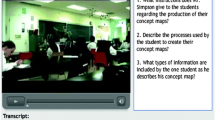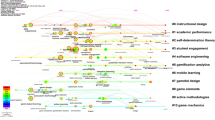Abstract
An Educational Innovation approach denominated, “I-semester,” for Mechatronics Engineering students was designed, implemented and evaluated. The teaching–learning concept applied herein is interactive, experiential, motivates students and encourages their creativity to provide solutions to real-world challenges. Within the frameworks of competency-based education (CBE) and challenge-based learning (CBL), learning experiences were designed consisting of educational modules and challenges focused on developing disciplinary and transversal competencies during an academic semester. The modules provided theoretical and practical knowledge, whereas challenge activities promoted the development of competencies and the generation of creative–solution proposals. This educational research effort included a formal methodology that started with a problem statement and a hypothesis, followed by the method and an experiment that consisted of the I-semester implementation with a sample of students enrolled in the Mechatronic Engineering program at Tecnologico de Monterrey. The methodology, the development of the experiment and the findings through the analysis of gathered data could contribute to educational research focused on CBE–CBL approaches in educational programs for undergraduate engineering students.






Similar content being viewed by others
References
EDUCAUSE: 7 Things You Should Know About Competency-Based Education. ELI 7 Things You Should Know. http://content.ctcd.edu/downloads/online/files/7thingsyoushouldknow.pdf (2014). Accessed June 2018
Beneitone, P., Esquetini, C., González, J., Marty, M., Siufi, G., Wagenaar, R.: Reflexiones y Perspectivas de la Educación Superior en América Latina—Informe Final Proyecto Tuning América Latina 2004–2007. Deusto University and Groningen University. http://tuningacademy.org/wp-content/uploads/2014/02/TuningLAIII_Final-Report_SP.pdf (2007)
Everhart, D.: 3 Key Characteristics of Competency Based Learning. BlackBoard Blog. https://blog.blackboard.com/3-key-characteristics-of-competency-based-learning/ (2014). Accessed May 2018
Argudin, Y.: Educación Basada en Competencias: nociones y antecedentes. Trillas, Mexico City (2006)
Valencia, M., Orona, L., Romo, S., Lozoya, R., Aguilar, A.: Construcción de un robot de telepresencia: aplicando el enfoque multidisciplinario en la educación basada en competencias. Congreso Internacional de Innovación Educativa, Monterrey, Mexico (2017)
Rosas, R., Díaz, E., González, C.: Aprendizaje basado en retos: Sistemas integrados de manufactura, retrospectiva en tres años. Congreso Internacional de Innovación Educativa, Monterrey, Mexico (2017)
Tecnológico de Monterrey: Aprendizaje Basado en Retos. Observatorio de Innovación Educativa del Tecnológico de Monterrey: Edutrends, Monterrey, Mexico (2016)
Jou, M., Hung, C.-K., Lai, S.-H.: Application of challenge-based learning approaches in robotics education. Int. J. Technol. Eng. Educ. 7(2), 1–42 (2010)
Johnson, L.F., Smith, R.S., Smythe, J., Troy, V., Rachel, K.: Challenge-Based Learning: An Approach for Our Time. The New Media Consortium, Austin. https://eric.ed.gov/?id=ED505102 (2009)
Membrillo-Hernández, J., de Ramírez-Cadena, M.J., Caballero-Valdés, C., Ganem-Corvera, R., Bustamante-Bello, R., Benjamín-Ordoñez, J.A., Elizalde-Siller, H.: Challenge based learning: the case of sustainable development engineering at the Tecnologico de Monterrey, Mexico City Campus. Int. J. Eng. Pedagogy 8(3), 908–914 (2017)
Gaskins, W.B., Johnson, J., Maltbie, C., Kukreti, A.R.: Changing the learning environment in the college of engineering and applied science using challenge based learning. Int. J. Eng. Pedagogy 5(1), 33–41 (2015). https://doi.org/10.3991/ijep.v5i1.4138
Apple: Challenge Based Learning. A Classroom Guide. https://images.apple.com/education/docs/CBL_Classroom_Guide_Jan_2011.pdf (2010). Accessed April 2018
Astengo, J.: Reflexiones sobre los procesos de evaluación en los Talleres Verticales. Congreso Internacional de Innovación Educativa, Monterrey, Mexico (2017)
Maya, M., García, M., Britton, E., Acuña, A.: Play lab: creating social value through competency and challenge-based learning. In: Proceedings of the International Conference on Engineering and Product Design Education, Oslo, Norway, pp. 710–715 (2017)
Ramírez-Mendoza, R., Cruz-Matus, L., Vazquez-Lepe, E., Rios, H., Cabeza-Azpiazu, L., Siller, H., Ahuett-Garza, H., Orta-Castañon, P.: Towards a disruptive active learning engineering education. In: Proceedings IEEE-EDUCON—Global Engineering Education Conference, Santa Cruz de Tenerife, Spain, pp. 1251–1258 (2018)
Tecnológico de Monterrey: Modelo de programas formativos de profesional TEC21. http://miscursos.itesm.mx/bbcswebdav/courses/VPR.T00100.1513.A/curso/contenido/pdf/modelo_prog_form_prof_2015.pdf (2015). Accessed May 2018
Carlile, O., Jordan, A.: Approaches to Creativity: A Guide for Teachers. McGraw-Hill, Maidenhead (2013)
Tornkvist, S.: Creativity: Can it be taught? The case of engineering education. Eur. J. Eng. Educ. 23(1), 5–12 (1998)
Gay, L.R., Mills, G.E., Airasian, P.: Educational research: Competencies for analysis and applications. Merrill Prentice Hall, Columbus (2006)
Bruner, J.: Acts of meaning. Harvard University Press, Cambridge (1990)
Jonassen, D.H., Peck, K.L., Wilson, B.G.: Learning with Technology: A Constructivist Perspective. Prentice Hall Inc., Upper Saddle River (1999)
Trochim, W., Donnelly, J.: The Research Methods Knowledge Base. Thomson, Mason (2007)
Hernández, R., Fernández, C., Baptista, M.: Metodología de la Investigación. McGraw-Hill, Mexico City (2014)
Sandín, M.P.: Investigación Cualitativa en Educación: Fundamentos y Tradiciones. McGraw-Hill, Madrid (2003)
Denyer, M., Furnémont, J., Poulain, R., Vanloubbeeck.: Las competencias en la educación. Un balance. Fondo de Cultura Económica. Mexico City (2007)
Zavala, A., Arnau, L.: 11 Ideas Clave: Cómo Aprender y Enseñar Competencias. Grao, Barcelona (2008)
Desimone, L.M.: Improving impact studies of teachers’ professional development: toward better conceptualizations and measures. Educ. Res. 38, 181–200 (2009). https://doi.org/10.3102/0013189X08331140
Stoll, L., Kools, M.: The school as a learning organisation: a review revisiting and extending a timely concept. J. Prof. Cap. Community 2(1), 2–17 (2017)
Meirink, J.A., Imants, J., Meijer, P.C., Verloop, N.: Teacher learning and collaboration in innovative teams. Camb. J. Educ. 40, 161–181 (2010)
Tecnológico de Monterrey: Modelo Educativo TEC21. http://modelotec21.itesm.mx/files/folletomodelotec21.pdf (2016). Accessed May 2018
Acknowledgements
Authors are grateful to all the professors who participated in the implementation of the Mechatronic Engineering I-semester at Tecnologico de Monterrey, in Hermosillo, Mexico. The complete team consisted of: Laura Yolanda Quiroz, Carolina Félix, Arturo Gil, Arturo Encinas, Ricardo Quihuis, Sixto Velarde, Enrique Martinez, Adrián Rendón, José Manuel Nieto, and Luis C. Félix-Herrán. This gratitude is extended to Mr. Kurt Gerhard, owner of THERVAL S.A. of C.V., for having participated very actively as the partner-trainer during the whole challenge implementation. Also, special thanks are given to the directors of the School of Engineering and Sciences and to the Curriculum Innovation Department of the Academic Vice-Chancellor of the Tecnologico de Monterrey for their support during all stages of this educational research effort. The authors would like to acknowledge the financial and the technical support of Writing Lab, TecLabs and Tecnologico de Monterrey, Mexico in the production of this work.
Author information
Authors and Affiliations
Corresponding author
Additional information
Publisher's Note
Springer Nature remains neutral with regard to jurisdictional claims in published maps and institutional affiliations.
Rights and permissions
About this article
Cite this article
Félix-Herrán, L.C., Rendon-Nava, A.E. & Nieto Jalil, J.M. Challenge-based learning: an I-semester for experiential learning in Mechatronics Engineering. Int J Interact Des Manuf 13, 1367–1383 (2019). https://doi.org/10.1007/s12008-019-00602-6
Received:
Accepted:
Published:
Issue Date:
DOI: https://doi.org/10.1007/s12008-019-00602-6




